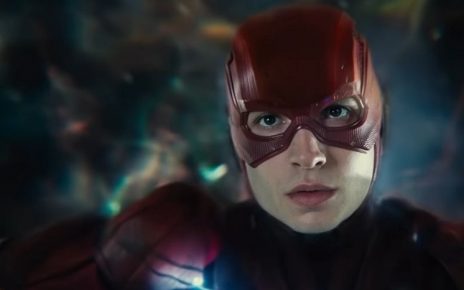“Protests in New York/Listen to the call of the wild/Brother, sisters carrying signs/Breathe deep before it’s too late/The sky is falling, burning your eyes.”
While those words sound eerily appropriate for 2020, they’re not even from this century. The rebellion anthem they’re taken from, “Resistance,” was written 30 years ago for Queensrÿche’s 1990 album Empire.
“That’s what I was interested in writing about; that’s what moved me,” says former vocalist Geoff Tate of the verses he contributed to the album, which also ruminate on homelessness (“Della Brown”), the illegal drug trade (“Empire”) and media manipulation (“Anybody Listening?”). “If you listen to the lyrics, it’s like they were written now because these situations these songs are dealing with are about situations that haven’t changed.”
Such astute observations are one reason why Queensrÿche’s fourth studio album — which entered the Billboard 200 on Sept. 22, 1990, at No. 35 and peaked at No. 7 — remains timeless. A lean, mean 11-track masterpiece of hard-driving yet accessible selections that appealed to those who wanted more from their music than hair metal’s ridiculous charms, it spawned six singles that were illustrated by cerebral, gossamer videos and sold 3.5 million copies, according to Nielsen Music/MRC Data.
“[It] was really the culmination, at that point, of the development of our chemistry together and the band’s [career] trajectory,” says former guitarist Chris DeGarmo of the LP.
Queensrÿche formed in the early ’80s, inspired by titans like Iron Maiden, Judas Priest and Rush. The quintet’s individual style started maturing with 1986’s gothic-infused Rage for Order, which showcased DeGarmo and Michael Wilton’s symbiotic guitar interplay, bassist Eddie Jackson’s and drummer Scott Rockenfield’s innovative rhythms, and Tate’s multi-octave prowess. Their mainstream breakthrough, 1988 platinum concept album Operation: Mindcrime, was hailed by some critics as on par with Pink Floyd’s The Wall, with finale “Eyes of a Stranger” cracking open the door at MTV. That momentum, coupled with backing by Q Prime Management (which renegotiated a stronger recording contract for the act with EMI Records), had Queensrÿche’s popularity set to explode. Rockenfield recalls: “I think our chemistry was just on fire. I know myself, I was super charged. Mindcrime was succeeding. We finally had some money in the bank, and we felt confident in the music that we made for Empire … we were firing on all cylinders 24/7.”
Whereas Mindcrime — a dark tale about a junkie turned political assassin for a nefarious underground movement — had been Tate’s brainchild, DeGarmo steered Empire. His focus was on stripping the material down to its essentials and bringing melody to the fore. “I was definitely interested in kind of a deconstruction of, not necessarily complexity, but … trying to make sure that the songs stood tall on the fewest stilts,” explains DeGarmo. “It was my opinion that great tunes do that.” Queensrÿche reunited with Mindcrime producer Peter Collins (Rush, Bon Jovi) and engineer James “Jimbo” Barton (Metallica, Enya) for Empire. The five musicians unanimously sang their praises to Billboard. In a rare interview, Collins reciprocated, describing them as “super professional” — he sometimes had to tell them to stop tweaking the music with Barton after Collins had called it a day. “I hadn’t experienced that one before,” he says, laughing.
Although Barton immersed Empire in a warmer tone than Mindcrime, its multilayered dimensions nonetheless sound pristine. Ticking guitar strings reflect the anxious countdown to rendezvousing with the title character of “Jet City Woman,” then roar like a plane’s engines. Rippling notes complement a thunderstorm in “Della Brown,” which segues into “Another Rainy Night (Without You).” A gunshot-like crash in opener “Best I Can” is bookended with an abrupt door slam that concludes “Anybody Listening?” The collection is so well-rendered that, according to Tate and Wilton, engineers use it as a guide to balancing sound boards at concert venues.
Jackson notes that while listening to music as he grew up, he would think, “‘Wow, that guitar sound sounds great,’ or ‘Listen to the sound of those drums.’ A lot of people overlook the fact there was also a producer and an engineer involved, and you have to credit them as well, because they’re [as much] a part of that as the band is,” he says. “I’ve always, to this day, credited those individuals either producing or engineering our albums.”
Empire launched with the title track, since it seemed like a “between Mindcrime/Empire song” with “heavy riffs” that could bridge the two albums, says Wilton, who co-wrote it. “Best I Can,” a treatise about the determination to succeed in the face of adversity, followed. The singles reached Nos. 22 and 28, respectively, on Billboard’s Mainstream Rock Songs chart.
Then the celestial “Silent Lucidity” took flight in January 1991. The track, buoyed by lush orchestration from the late Michael Kamen, was inspired by experiments DeGarmo had been doing with lucid dreaming as a creative tool. Collins remembers being “thrilled” when he first heard it. “I got into it very quickly once we started working on it,” he says, describing it as “a highly unusual song for a rock band to do.”
DeGarmo recounts that he immediately knew after he finished composing the tune that it would connect with people. “To what degree — that’s the big mystery,” he admits. “But you just kind of know when something unfolds in a way that you feel that there’s going to be an ability for people to identify with it.”
It connected, all right: “Silent Lucidity” topped Mainstream Rock Songs and became Queensrÿche’s sole crossover hit, peaking at No. 9 on the Billboard Hot 100 and earning a Grammy nomination for best rock performance by a duo or group with vocal. The act’s fan base widened as Empire charted for 129 weeks, and its clout and exposure increased when it landed such titles as the viewer’s choice honor at the 1991 MTV Video Music Awards and prestigious bookings like the 1992 Grammy ceremony.
The band could also headline arenas for the first time, with its ambitious Building Empires trek. “We toured the world, I’d say, 12 to 14 months, off and on,” says Jackson. “It was probably one of our longest tours we’ve ever experienced.” The outing promoted both Mindcrime — the fivesome played it start to finish — and Empire. 1991 audio/video package Operation: Livecrime, recorded during a three-night stop in Wisconsin, went double-platinum. Such financial success “wasn’t something that any of us, I don’t think, really saw was going to come,” says Rockenfield.
The riches kept flowing when Queensrÿche delivered 1994’s platinum-selling Promised Land. However, DeGarmo left in 1997, the same year the group released Hear in the Now Frontier, which was hamstrung by its musical discontinuity and EMI going under mid-album cycle. He rejoined for 2003’s Tribe, then left again. In 2012, Tate was fired due to interpersonal conflicts, which resulted in dueling lawsuits until a settlement was reached in 2014. Rockenfield, who took a paternity leave in 2017, declined from commenting on his status with the band.
But Queensrÿche has soldiered on by steadily releasing new music, and Empire’s legacy remains strong. It’s the group’s most-streamed album (115.6 million streams at press time), and its singles are among the band’s most-watched YouTube clips — “Silent Lucidity” dominates with 33.8 million views. “A lot of people hold it close to their heart, and it was definitely evident when I was out touring it,” says Tate, who had been performing Empire and Rage for Order in their entirety before the coronavirus pandemic forced him off the road in February.
Collins summarizes the record’s heritage as Queensrÿche establishing “a genre of rock music” with it, citing its originality and “excellent songwriting.” “There’s no other band I can compare to the way they structured the guitar work,” he observes.
“To put something together like that and be that successful, you look back at that and you just go, ‘Wow,’” Wilton reflects. “I’m very proud of it … Now, 30 years [later], you go, ‘Yup, everything was lined up in the stars right for this album.’”




